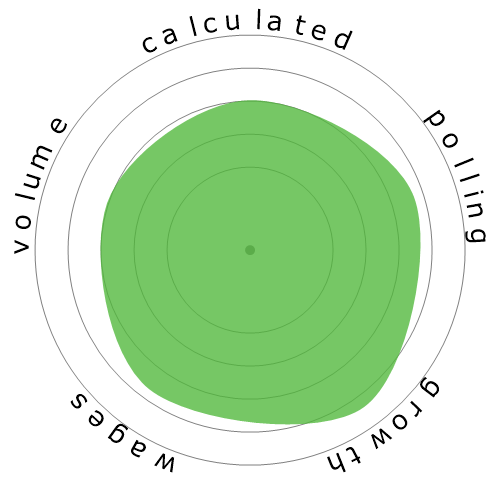Mechanical Engineers
Where Would You Like to Go Next?
Or, Explore This Profession in Greater Detail...


What does this snowflake show?
What's this?
We rate jobs using four factors. These are:
- Chance of being automated
- Job growth
- Wages
- Volume of available positions
These are some key things to think about when job hunting.
People also viewed
Calculated automation risk
Low Risk (21-40%): Jobs in this level have a limited risk of automation, as they demand a mix of technical and human-centric skills.
More information on what this score is, and how it is calculated is available here.
User poll
Our visitors have voted there's a low chance this occupation will be automated. This assessment is further supported by the calculated automation risk level, which estimates 30% chance of automation.
What do you think the risk of automation is?
What is the likelihood that Mechanical Engineers will be replaced by robots or artificial intelligence within the next 20 years?
Sentiment
The following graph is shown where there are enough votes to produce meaningful data. It displays user poll results over time, providing a clear indication of sentiment trends.
Sentiment over time (quarterly)
Sentiment over time (yearly)
Growth
The number of 'Mechanical Engineers' job openings is expected to rise 11.0% by 2033
Total employment, and estimated job openings
Updated projections are due 09-2025.
Wages
In 2023, the median annual wage for 'Mechanical Engineers' was $99,510, or $48 per hour
'Mechanical Engineers' were paid 107.1% higher than the national median wage, which stood at $48,060
Wages over time
Volume
As of 2023 there were 281,290 people employed as 'Mechanical Engineers' within the United States.
This represents around 0.19% of the employed workforce across the country
Put another way, around 1 in 539 people are employed as 'Mechanical Engineers'.
Job description
Perform engineering duties in planning and designing tools, engines, machines, and other mechanically functioning equipment. Oversee installation, operation, maintenance, and repair of equipment such as centralized heat, gas, water, and steam systems.
SOC Code: 17-2141.00
Comments (49)
Engineering is also a profession, which means that its members set the standards for who can be called an engineer and take responsibility for their decisions. AI cannot make decisions in light of the weight of their actions. It is a tool, not a person, which ultimately undermines any semblance of accountability that is necessary for engineering to be a respectable and societally beneficial profession.
Imagine you live your life in black and white from the moment you’re born to the time you’re 16. During this time you’re taught everything there is to know about color. You could talk about color for hours yet you still wouldn’t truly understand what color is until you actually see it. Now imagine that this is a friend of yours and you’re trying to explain the color yellow to them. You might tell them that yellow is a sunny day and energy or electricity, that it’s happiness or something else that you associate with the color yellow. Your friend will most likely not think of sunny days and electricity being similar in anyway and probably be very confused. Your friend represents ai and its ability to understand human wants, needs, and the way people live their lives. Making these three things easier to access or do are one of the main purposes of this job. Also there’s the whole ethical debate because it’s set to be as productive as it can, and eventually humanity gets in the way of that and it has to get rid of us
1. Fixing stuff, this is complicated as it could literally be anything that could be broken about something.
2. Complexity, the more complex a job is, the more unlikely this job will be taken, this job is hard and absurdly complex sometimes.
3. Problems, this job can cause lots of issues with AI and it is the communication and bugs/viruses that could occur, the cost of these robots would be nuts and it would be hard to afford these machines.
4. Design, AI is a complex work of coding, there is one problem, how would they make the design of there robots that won't screw up how they work, they have to be just right to mimic a person and that would be hard to do.
Reply to comment